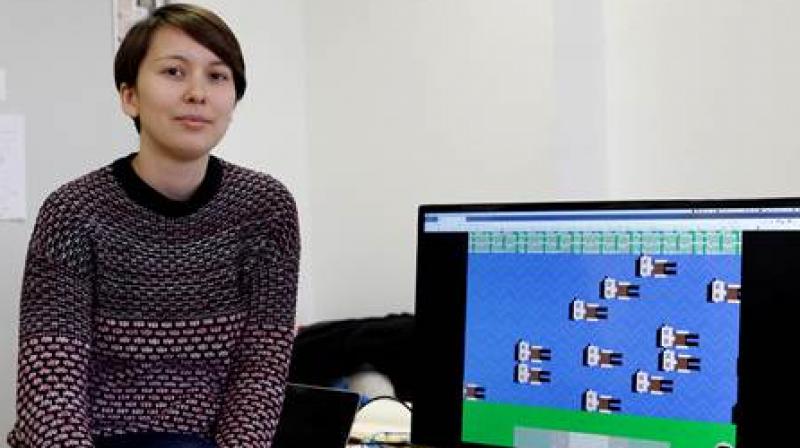Online game 'Razor Wire' highlights migrants' hardship
05 December, 2018

The new online game “Razor Wire” has three fiendishly tricky levels to it: First, escape war in your home country. Then, dodge police as they raze your migrant camp, and lastly, cross a river while avoiding the corpses of those who never made it.
You only get one life.
But winning is not the objective of Razor Wire, nor is its rudimentary, top-down design complete with chunky pixels intended to please lovers of retro computer games.
Instead, Razor Wire is the project of a Slovenian human rights group which hopes to raise awareness of the hardship and despair migrants face and help its campaign for the government to dismantle a wire fence on the Slovenian-Croatian border.
“The wire fence has been standing on the Slovenian border for three years and it seems like we stopped caring, it seems like we have accepted it as a given reality,” said Maja Cimerman, a project manager at the NGO “Today is a New Day”.
“It has not made crossings impossible ... but more dangerous,” Cimerman said.
Nine migrants drowned while trying to cross the Kolpa river last year, she added, a figure confirmed by a police spokeswoman. Those killed may not have known how to swim or were surprised by deep water or strong currents, the spokeswoman said.
Sections of the fence first went up in 2015, when hundreds of thousands of people fleeing war and poverty in the Middle East, Africa and other regions passed through the Balkans and Slovenia on their way to wealthier Western European states.
The Balkan route was sealed off in 2016 and the number of illegal crossings into Slovenia has decreased sharply, to about 8,000 in the first ten months of this year, compared to almost 500,000 in the period from October 2015 to March 2016.
But the fence is still standing and now covers about 179 km (111 miles) of the 670-km-long border with Croatia.
Although not as strong as in neighbouring Hungary for instance, anti-immigration sentiment has been on the rise in Slovenia since the 2015 migrant crisis. In June, the anti-immigrant SDS party scored a landslide victory in a parliamentary election but was forced into the opposition after failing to form a coalition government.
Inspiration for the game came from the migrants themselves, Cimerman said.
“Many refugees... call their experience “the game” because it has many traps and obstacles. They have to travel at night, they have to avoid the police, they are often robbed or their documents are taken away by the police, and often or regularly they are sent back to refugee camps,” she said.
There is no happy ending to Razor Wire: when the player manages to cross the Kolpa river and finally reaches the Slovenian border, he is greeted by a sign depicting razor wire and cannot go any further.
“Many of them have tried “the game” 10 times or more and they continue trying till they enter Europe,” she said.
Cimerman said refugees were a useful scapegoat for the government.
“It’s easier for the government to deal with migrants and to create a sense that refugees are a threat to us than actually dealing with real problems,” she said.
